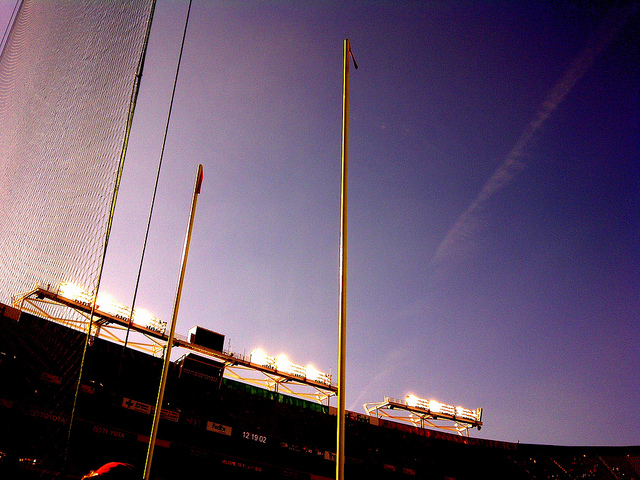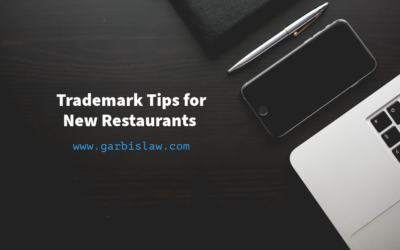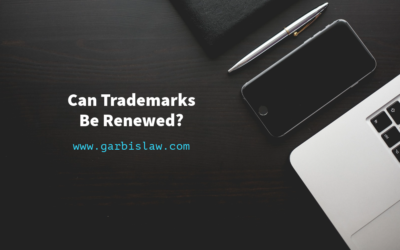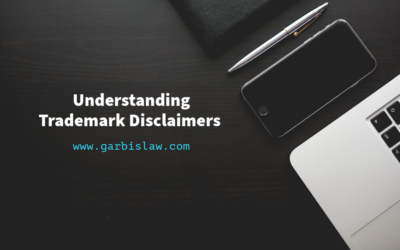With football season quickly approaching, we see football teams starting to protect more than just the quarterback. Today I’ll take a look at the Chicago Bears and its trademark defense.
Lately, it seems like the Bears have been caught in an identity crisis. The “trademark” defense that Chicago prided itself on has been gone for some time now and with any trademark, if you stop using it, you lose it.
The Chicago Bears Organization has, however, been active in protecting its real trademarks…as in those filed with the United States Patent and Trademark Office (“USPTO”). This year, the Bears have requested an extension of time to oppose 3 potential trademarks that have been applied for with the USPTO and which will be taking a look at in this post.
What is a trademark?
A trademark identifies the source of goods or services you are offering. It is an essential tool used by companies and individuals to protect brands, slogans, names, etc. Sports teams and leagues are extremely active in protecting their marks to maintain uniqueness and avoid counterfeit goods being sold, or false associations to the teams and/or leagues.
When an individual submits a trademark application to the USPTO, the first step is for it to be examined by an Examining Attorney to determine whether there are any issues with the application. The most common issue is that the applied-for mark will cause confusion with another registered (or pending) mark, which will lead to the rejection (or suspension) of the submitted application.
If there are no issues with the application, the Examining Attorney will allow it to proceed to the next step, publication. Here, the mark is published in the Official Gazette for a period of 30 days. During that time, anybody who feels that they would be damaged by the mark if it continues on to register may oppose it. If needed, those opposing the mark may request an extension of time to either build a stronger case, settle, or figure out whether or not to proceed with the opposition.
In the case of the Chicago Bears, requests for an extension of time have been filed for each application.
Haymaker
The first pending application at issue is that for a bar/restaurant in Austin, Texas named Haymaker. Haymaker applied for a trademark that protects its logo, the face of a growling bear. Chicago has an issue with that, as the organization also has a trademark that looks like a growling bear. Take a look at the two logos side by side:
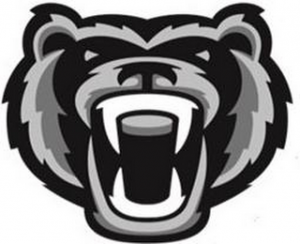
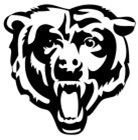
Do you think the two marks are confusingly similar? In order for the Bears to be successful in an opposition, if one is ultimately filed, it would have be shown that consumers are likely to associate the Haymaker mark with that of the Bears. A number of factors come into play with this argument that you probably don’t care about, but it often lies on the thought process of a typical consumer. Would you associate this bar with the Chicago Bears if you are passing by and see the logo?
ONCE A BEAR, ALWAYS A BEAR
Next, the Chicago Bears, along with Missouri State University and a company named Bear U.S.A., Inc., have filed extensions to file an opposition for the pending application of ONCE A BEAR, ALWAYS A BEAR. Here, for obvious reasons, the issue is clearly with the word “Bear.” Missouri State is also referred to as the Bears and Bear U.S.A. is an apparel company that sells a line of parkas under a “Bear” line. Why does an apparel company care? Well, this pending application covers polo shirts, shorts, sweatpants; sweatshirts, and t-shirts which is in the same class as Bear U.S.A.’s marks. The same analysis would apply here as the logo Haymaker is attempting to register. Is there a likelihood of confusion?
WASHINGTON BEARS
Finally, the Chicago Bears have requested an extension to oppose the pending application for WASHINGTON BEARS covering apparel. Again, the term BEARS is at issue here. Although Washington and Chicago differ, they are both considered geographic indicators and don’t necessarily carry as much weight as other terms in a trademark. In this case, consumers would look to the word BEARS and may potentially come up with false associations.
It’ll be interesting to see what the Chicago Bears do with all of these pending matters. Maybe this is the year we see that trademark defense come back after all!

